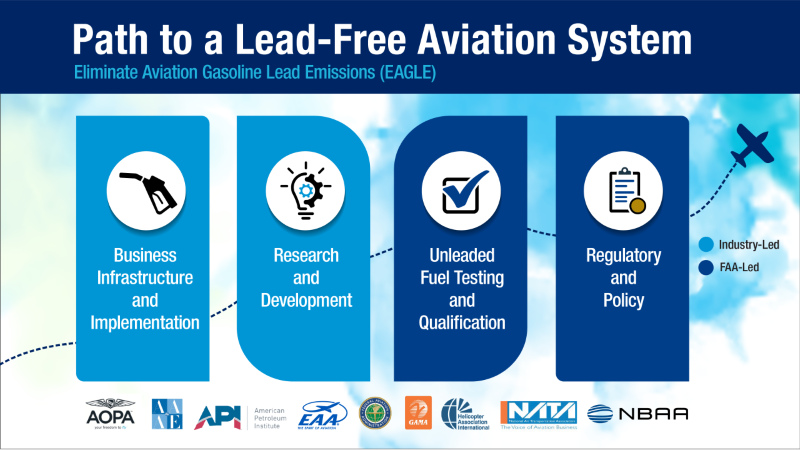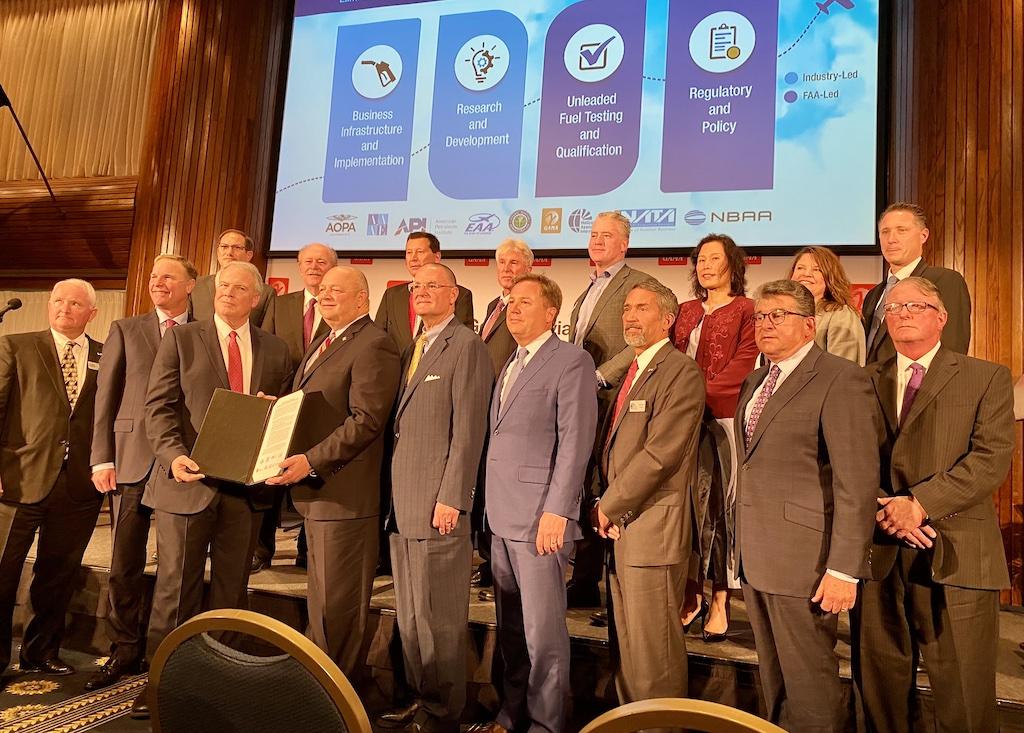
WASHINGTON—FAA Administrator Steve Dickson on Feb. 23 unveiled an industry-government initiative to eliminate the use of leaded aviation fuel (avgas) by piston-engined aircraft by 2030.
Called Eliminate Aviation Gasoline Lead Emissions (EAGLE), the initiative requires industry to accomplish the first two of a four-step approach to eliminating leaded avgas within this decade—to build the infrastructure and coordinate production of commercially viable unleaded fuels, and secondly to support research and testing of needed piston-engine modifications or engine retrofits.
The FAA will perform fleetwide testing and qualification of unleaded aviation fuels of different octane levels and, following an expected prohibition of leaded aviation fuels by the U.S. Environmental Protection Agency (EPA), would publish regulations that certify piston-engine modifications and new piston engines that run on unleaded fuel.
Piston aircraft that operate on leaded fuel are the largest remaining source of lead emissions into the air, according to the EPA.
“We’re at a unique point,” Dickson told the General Aviation Manufacturers Association (GAMA) annual state-of-the-industry press conference, held at the National Press Club in Washington, D.C. “We have the resources, the energy and the will to get this done. Through this collaborative effort, we will remove more than 350 tons of lead from the atmosphere every year.”
Industry Commitment

The FAA and industry have already worked for a decade to develop an unleaded avgas. In 2011, the FAA established an unleaded avgas transition aviation rulemaking committee; in 2014, the agency formed the Piston Aviation Fuel Initiative (PAFI) to develop an unleaded avgas “with the least impact on the existing piston-engine aircraft fleet.”
An unleaded avgas developed by General Aviation Modifications Inc. (GAMI)—G100UL—can be used by FAA supplemental type certificate.
The EAGLE initiative will build off of earlier efforts, Dickson said. “We will accelerate our actions, investments and policies to accomplish and make the transition to a lead-free piston-engine fleet,” he said.
Dickson then posed with the leaders of several aviation associations that have committed to the EAGLE goal. A first meeting of industry stakeholders, which is expected to include fuel suppliers and distributors, has been scheduled for March 16.
External developments and an overall push toward aviation sustainability have influenced the unleaded avgas time line. Last December, several general aviation associations asked the FAA to intervene after a “rushed” decision by the board of supervisors of Santa Clara County, California, to ban the sale of 100 Low Lead avgas at two airports—Reid-Hillview (KRHV) and San Martin (E16)—as of Jan. 1.
The EPA announced on Jan. 12 that it will evaluate whether emissions from piston-engine aircraft using leaded fuel endanger public health, a prelude to requiring new fuel performance standards under the Clean Air Act. The agency plans to issue a proposed endangerment finding for public review in 2022 and take final action in 2023.
